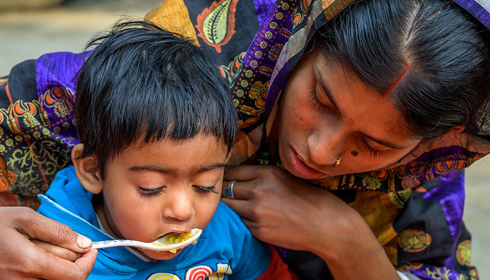
Global Research Initiative Seeks to Transform Pregnancy Outcomes with Innovative Supplement
A pioneering worldwide research cooperation hopes to alter mother and child health by providing an enhanced nutritional supplement for pregnant women. The ‘Mother’s Micronutrient Supplement for Pregnancy and Lactation’ (MoMS) project brings together researchers from Kenya, Norway, and Denmark to address the essential issue of maternal malnutrition. The project, which has received DKK 68 million ($9.87 million / €9.5 million) from the Bill & Melinda Gates Foundation and the Novo Nordisk Foundation, aims to minimise low birth weight, improve mother and child health, and promote children's growth and cognitive development.
During pregnancy, women's nutritional needs grow dramatically. While a well-balanced diet is preferable, expecting mothers in low- and middle-income countries face food scarcity and limited nutritional diversity. Nutritional deficits can have serious effects, such as poor mother and infant health, decreased cognitive development, and an increased risk of chronic disease. In 2020, the World Health Organisation (WHO) recommended multiple micronutrient supplements (MMS)—a daily intake of 15 vital vitamins and minerals—as a more effective alternative to iron-folic acid supplementation in antenatal care.
However, a recent study suggests that we should improve the current MMS formulation. An upgraded version is necessary due to the absence or suboptimal delivery of some critical nutrients. This is the core of the MoMS project, which will create and test an improved supplement, MMS+, with higher doses and more essential elements. Dr. Zipporah Bukania, senior principal research scientist at the Centre for Public Health Research, Kenya Medical Research Institute (KEMRI), emphasises the need to increase maternal nutrition.
"Nutritional deficits during pregnancy can have major effects on both maternal and foetal health." That is why it is critical that we enhance pregnant women's diets for the sake of their foetuses and offspring. This grant is a tremendous recognition of that, and our goal is for the research to not only enhance health in the participating areas but also serve as the foundation for new worldwide health standards for pregnant women and their children."
Associate Professor Benedikte Grenov of the University of Copenhagen leads MoMS's Scandinavian branch, as does Professor Tor A. Strand of the University of Bergen and Innlandet Hospital Trust. Both have substantial expertise conducting child nutrition studies in low- and middle-income countries. Their emphasis is on adding additional critical elements to the supplement to maximise its advantages.
"We want to create a new product that contains the nutrients docosahexaenoic acid (DHA) and choline, as well as higher doses of vitamin B3, because we believe it will benefit women, foetuses, and children. DHA and choline, in particular, are thought to promote cognitive development in youngsters. So, if mothers and foetuses do not acquire the nutrients they require during pregnancy, it might have long-term consequences for the kid," explains Associate Professor Benedikte Grenov.
In Bungoma County, western Kenya, where food insecurity is common and nutritional diversity is limited, MoMS will conduct its initial field trial. The native diet is primarily composed of starchy foods such as 'ugali,' a porridge prepared from maize flour, or a blend of sorghum, millet, and cassava flour. Consumption of protein-rich meals such as fish and animal products remains low, increasing the risk of nutrient shortages among pregnant women. This makes Bungoma County a suitable location for testing the effects of the new supplement.
The project will involve the recruitment of 3,000 pregnant mothers. Both women and children will receive intensive monitoring throughout their pregnancy and postpartum periods. Health professionals will evaluate maternal health, foetal development, and child growth to collect comprehensive data on the influence of MMS+.
Beyond increasing mother and child health, the MoMS project aims to have a long-term impact by building local healthcare systems. According to Senior Vice President Arne Astrup, Professor, MD, of the Novo Nordisk Foundation, malnutrition during pregnancy and early childhood can lead to serious chronic diseases like cardiovascular disease and diabetes, affecting a country's future. As a result, I am hopeful that this initiative will help enhance local health facilities, train health workers, modify health behaviours, and increase capacity both locally and with the government. We need to generate structural, lasting change, both regionally and globally.”